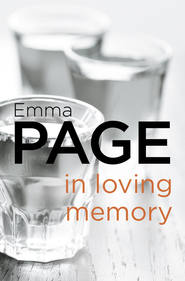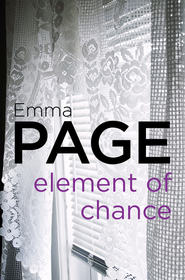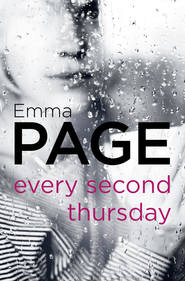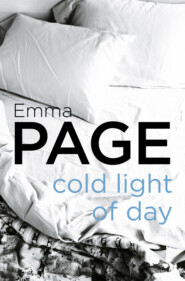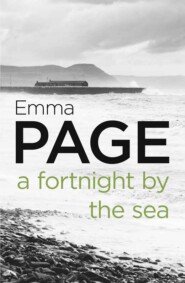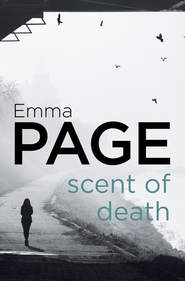По всем вопросам обращайтесь на: info@litportal.ru
(©) 2003-2024.
✖
A Violent End
Автор
Год написания книги
2018
Настройки чтения
Размер шрифта
Высота строк
Поля
The years slipped by. Then, one evening in his garden shed, Paul had an exceptionally bright idea. He knew at once he was on to a winner. This one he didn’t pass on to his firm, this one he hung on to. He was by now twenty-eight; if he was ever going to amount to anything he must make a start soon. Joan knew what was in the wind. She took it for granted he would pass the idea on as before, but he told her no; this one he was going to develop himself.
He called on more than one bank manager, he approached other conventional sources of capital, but without success. The world was sunk in recession, it was no time for a young man from the back streets to be welcomed through the portals of finance houses, no one wanted to know.
And then one winter Saturday some months later, Joan’s father won a substantial sum on the football pools he had unsuccessfully patronized for decades. His immediate reaction was that he would give up work and enjoy himself, but Joan thought otherwise. She said not a word about the win to Paul but sat talking long and earnestly, first to her mother and then to her father; she talked more in the next few days than she had ever talked in her life.
At the end of this sustained onslaught her father caved in. He put on a clean shirt and went next door. He was a simple, direct man, anxious for his daughter’s welfare and future happiness; he put his proposition to Paul simply and directly: if Paul would marry Joan he could count on a good chunk of the winnings–at a fair rate of interest–to set up in business. It was by no means a fortune but he could at least make a modest start.
It took Paul thirty seconds to make up his mind. The wedding took place at a register office four weeks later. Joan moved into the little house next door and Paul began operations in a small rented unit on the local industrial estate.
Joan was overjoyed. She remained overjoyed for some years. After two years the twins were born and she was even happier and busier. Paul worked harder than ever, still going to evening classes, still studying, still spending hours in his shed, although she no longer joined him there but sat contentedly knitting or sewing in front of the living-room fire when the twins were in bed. She never felt herself neglected or lonely.
The business prospered. Paul moved into larger premises. The twins went to school. Paul decided that the time had come to leave the little house, move somewhere more suited to their improved position. Joan would have been happy to stay where they were but she fell in as always with whatever Paul decided. The new house was fitted out with every kind of labour-saving device; there was a good deal more leisure now for Joan, a good deal more money to spend.
She had nursed hopes that Paul might at long last begin to relax, they might branch out into a more social life together. But Paul brushed aside all such tentative suggestions. He looked on social life with contempt as the shallow activity of vain people without enough to do or to think about. ‘Find some outside interests,’ he told her. ‘Spend some money on yourself. Take things easy, enjoy yourself.’
She did her best. She joined the Parent-Teacher Association, took part in church activities, went to classes in cookery and flower-arranging. She made an effort to do something about her appearance, bought new clothes in the latest fashions at prices she could scarcely credit. But they never felt right on her. She settled in the end for upmarket versions of the plain, functional, serviceable garments she had always worn.
And still there remained a wilderness of leisure she didn’t know how to fill. Paul didn’t appear to notice as she began a slow slide into depression, punctuated by unnerving, seemingly random attacks of panic.
Now, on this November morning, she glanced about and saw that the children had finished breakfast. She sent them upstairs as usual to wash their hands and faces, brush their teeth, make themselves ready for school. It was always she who drove them to school; Paul’s works lay in the opposite direction.
She sat watching her husband with tense concentration. He looked at his watch, drained his cup and pushed back his chair. At once she nerved herself, launching precipitately into speech.
‘Will you be coming with me to the musical evening next week?’
He paused, surprised.
‘In the church hall,’ she added rapidly. ‘Tuesday, half past seven, it’s for Third World charities. I mentioned it to you last week. You promised to think about it and let me know.’
‘I’m afraid I forgot all about it,’ he told her amiably.
She twisted her hands together. ‘It’s a good programme, in a very good cause.’
‘I’m sorry.’ His tone was still easy and amiable. ‘I simply haven’t the time. We’ve got a rush on just now.’ He stood up, smiled down at her. ‘Anyway, it’s hardly my style. But don’t let me stop you going. You get out and enjoy yourself. There must be some woman from the church you can go with.’ He gathered up his newspapers. ‘I may be late this evening. Don’t bother about any supper for me, I can get a bite somewhere. If I want anything when I come in I can get it myself.’
She sat gazing up at him, her hands tightly clasped. ‘That’s three times this week you’ve been late home.’
He made a comical grimace. ‘Is that so?’ He patted his pockets, checked his keys. ‘You know how it is, the business won’t run itself. If there’s work to do, it’s got to be done.’ He kept impatience from his voice, kept his expression friendly and smiling. ‘Competition’s fiercer than ever these days. If you don’t keep pushing forward you very soon grind to a halt.’ He went round the table, stooped and gave her a perfunctory kiss on the cheek, straightened up, turned to go.
She suddenly overflowed with anger and resentment. ‘You’re seeing that girl again! That’s why you’re late!’
The muscles tensed along his jaw. He didn’t turn back to look at her. ‘What girl?’ he asked lightly.
‘What girl?’ she echoed fiercely. She was on the edge of tears, but she kept her voice low because of the children. She had an air of being astounded at her own temerity but she pressed resolutely on. ‘Have you got half a dozen girls on the go, then, that you don’t know who I’m talking about? I’m talking about Karen Boland.’
‘You’re talking nonsense,’ he said soothingly. He half turned, half smiled. ‘You’re upsetting yourself for nothing. I haven’t laid eyes on Karen since she left Wychford, months ago.’
There was a brief silence. ‘Is that the truth?’ She looked beseechingly up at him.
He patted her shoulder. ‘Of course it is.’ He glanced again at his watch. ‘I may have been a fool but I’m not a damned lunatic. That’s all water under the bridge, best forgotten.’ He gave her shoulder another encouraging pat and left the room. She heard the front door open and shut, his car starting up, moving off down the drive.
She got slowly to her feet, shaken and trembling. From force of habit she began to gather up the breakfast things, set them down on the draining-board. She stood beside it with her head lowered and her eyes closed, fighting back the tears.
When the children came running downstairs again a few minutes later she looked her normal self. She cast an eye over them, gathered up her purse and shopping-bag. ‘Come along, then,’ she said in her everyday tones. ‘Mustn’t be late for school.’
In Jubilee Cottage also breakfast was coming to an end. Ian Wilmot was pouring himself a last cup of coffee when he heard the postman. He rose with controlled haste and went into the hall, coming back with a handful of mail which he put down in front of his wife. ‘All for you again,’ he remarked cheerfully.
Christine glanced quickly through the post and laid it aside. All business mail, to be dealt with later. She looked up at Ian. ‘Nothing from your application?’ He had applied for a better job in the South.
He picked up his cup. He remained standing by his chair, drinking the coffee. He shook his head, smiling. ‘No, not yet.’
She continued to gaze up at him. ‘If you’re on the short list, surely you’d have heard by now?’
‘Possibly.’ He kept his amiable look, his light, dismissive tone.
She frowned. ‘You had real hopes of this one.’ Until six months ago he’d been confident of promotion in due course in his own department in Cannonbridge where he’d worked for the last twelve years. He believed he’d given satisfaction, he’d always got on well with his head of department. But six months ago the head had died suddenly and a new man had been brought in. The easy-going atmosphere altered overnight. The new man was a good deal younger than his predecessor, a good deal sharper, far more critical. He began a relentless drive for efficiency, singling out in uncomfortable ways those members of staff whose performance struck him as less than satisfactory. Ian’s name figured well up on this list.
Christine tilted back her head. ‘That’s the fifth job you’ve applied for in the last few months,’ she observed.
He moved his shoulders but said nothing.
‘Is there anything else on the cards?’ she pursued.
He drank his coffee. ‘Not at the moment.’ He smiled again. ‘Something will come along one of these days.’
She made no reply but sat gazing up at him.
He finished his coffee. ‘Are you nearly ready?’ he asked Karen.
She nodded, ate her last morsel of toast, drained her cup.
Ian went into the hall to put on his outdoor things. Christine stood up and began to clear the table.
Karen followed Ian into the hall. She reached down her brown quilted jacket from the hallstand and slipped it on. She gathered up the long tresses of her wavy gold-brown hair, twisting it loosely into a coil on top of her head before pulling on over it a knitted woollen cap of bright daffodil yellow.
Ian took her long matching scarf from its peg. ‘You’ll need this,’ he warned. ‘It’ll be a cold day.’ He draped the scarf round her neck and shoulders, tucking in the ends as if she were a child, smiling tenderly down at her. She stood in docile silence, smiling up at him.
In the kitchen Christine, returning from the fridge, paused by the door leading into the hallway, left slightly ajar. She caught sight of the two of them through the narrow aperture. She stood motionless, watching as Ian adjusted Karen’s woollen cap, touched her cheek, bent his head and kissed her lightly on the lips.
‘Ready, then?’ he asked.
‘Yes, I’m ready.’ She picked up her shoulder-bag, a fashionable affair of cream-coloured macramé, pulled on a pair of woollen gloves. She suddenly paused and exclaimed, ‘Oh–I was forgetting. The theatre scrapbook. I borrowed it from one of the students. I promised faithfully I’d return it today. It’s up in my room. I’ll run up and get it, I won’t be a moment.’
Behind the kitchen door Christine remained silent and motionless, studying the expression on her husband’s face as he stood watching Karen run swiftly up the stairs.
CHAPTER 2 (#ulink_30a2a16e-fb78-546d-8e9d-2a6422ed82f0)
The morning was now a little more advanced. The carriage clock on the study mantelpiece at Hawthorn Lodge showed nine twenty-five. The lodge was a pleasant Victorian villa not far from Overmead Wood, half a mile from the Wilmots’ cottage. It stood in an attractive rambling garden full of twists and turns, unexpected vistas.






